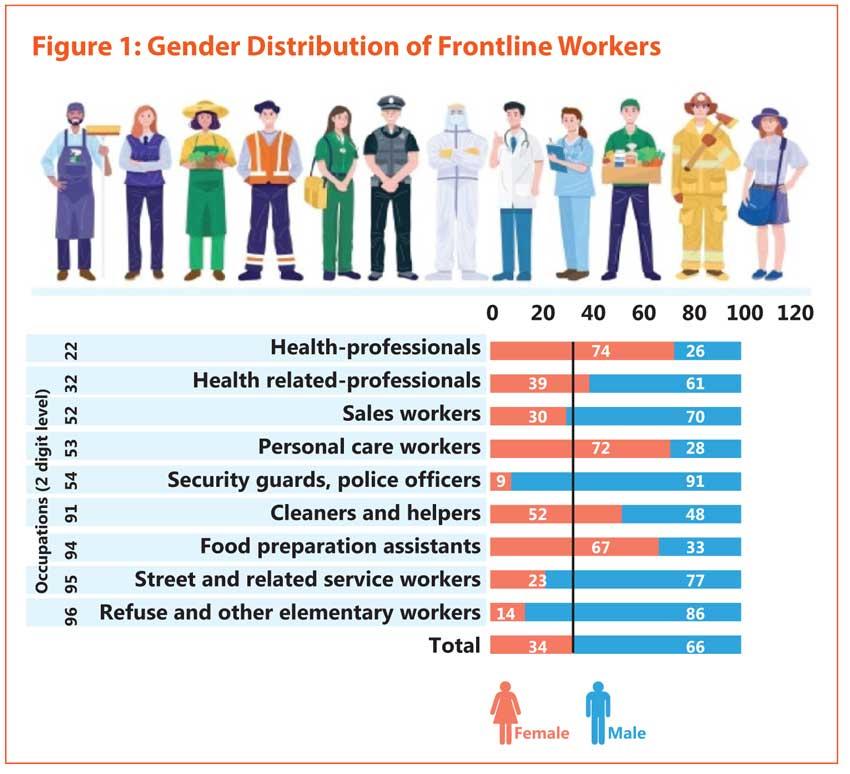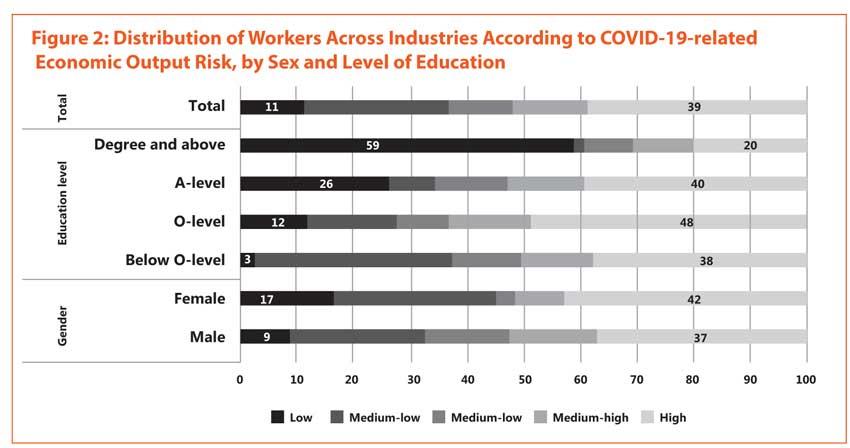Reply To:
Name - Reply Comment

 Lockdowns and restricted mobility have devastated labour markets across the world. According to the International Labour Organization (ILO), the equivalent of 225 million jobs was wiped away globally due to employment and working hour losses in 2020 (Q4) compared to 2019 (Q4).
Lockdowns and restricted mobility have devastated labour markets across the world. According to the International Labour Organization (ILO), the equivalent of 225 million jobs was wiped away globally due to employment and working hour losses in 2020 (Q4) compared to 2019 (Q4).
These working hour losses are four times higher than those experienced during the global financial crisis in 2009.
The COVID-19-instigated recession has affected the quantity and the quality of jobs, with increasing levels of informal types of work with lower remuneration. Restoration of labour markets is important to minimise damage to human development and increase aggregate demand, thereby boosting economic recovery.
This article discusses the necessity for targetted policy interventions to reviveSri Lanka’s labour market by illustrating that the impact of COVID-19 is different across occupations and industries.
COVID-19 and Sri Lanka’s labour market
Like in other countries, the pandemic has reduced employment levels and worsened employment conditions in Sri Lanka. According to quarterly Labour Force Survey data (LFS data) of the Department of Census and Statistics, from 2019 (Q4) to 2020 (Q4), employment levels reduced by 1.8 percent (or 150, 209 jobs). This decrease is mainly due to contractions in the service and manufacturing sectors, and the private sector as a whole.
This implies a deterioration of employment conditions as a large share (92 percent) of agriculture workers are informal workers who earn less compared to workers in the industry and services sectors. Further across different types of workers, employees are more likely to be covered by social security compared to the self-employed and the family workers.
The pandemic has increased the number of unemployed and those in inactivity during the 4Q 2019 to 4Q 2020 period, according to LFS data. The unemployment rate increased by 0.7 percent. Somewhat unexpectedly, the increase in the unemployment rate is high for males (by 0.9 percent) than for women (by 0.6 percent).
The lower decrease in the unemployment rate for women is mostly due to more women choosing to be inactive rather than being unemployed. The unemployment rate has increased the most for youth and those with middle-level skills (i.e. those with O-levels and A-levels).

Impact across occupations and industries
The effect of the pandemic on the labour market varies across occupations and industries. Frontline workers, such as healthcare workers and security personnel are most at risk of contracting the disease. As seen in the graph, the share of females in several frontline occupations (i.e., health professionals, health-related professionals, and care workers) was quite high, placing females in these occupations at a higher risk. Similarly, a higher share of males employed as protective service workers (i.e. policemen), street vendors and refuse workers are also at a higher risk.
Based on real-time economic and financial data, the ILO has categorised sectors according to the impact of the COVID-19 on economic output. In this categorisation, low-risk industries are the least affected economically by the crisis, while high-risk industries are the most affected.
Mapping these risk levels to labour force data shows that more than a third (39 percent) of workers are in high-risk industries in Sri Lanka (Figure 2).
Further, compared to their overall share in the economy the employment in high-economic-risk industries was more for females and workers with just O-levels
(See graph).
Conclusions and policy implications
The COVID-19 pandemic has presented labour markets with unprecedented challenges. Countries across the world responded to the crisis with a variety of policy measures to provide relief to affected workers and firms. These include measures to retain jobs, support incomes (through wage support, unemployment insurance, and social protection), support enterprises and the self-employed, and trade facilitation. It was easier for countries with well-established labour market institutions to respond to the crisis by expanding or extending the existing social security schemes.
Having better information on how different types of workers and industries are affected by the pandemic enabled countries to provide focused interventions, which are more cost-efficient and produce better results. As shown in this article, the COVID-19 induced economic recession has affected population groups differently.
Targeted policy interventions covering the most affected segments of the labour market are essential for a faster revival of the economy. Institutions that are strong and resilient which can collaborate, gather timely information on labour market conditions, access and deploy these to generate knowledge to guide policies for labour market recovery are vital.
(Nisha Arunatilake is the Director of Research at IPS. Her research interests include Econometrics and Economic Modeling, Education, Health, Labour & Migration, National Government Expenditures, Poverty and Development Policy, Social Security and Public Pensions, Taxation, Subsidies, and Revenue. She holds a BSc in Computer Science and Mathematics with summa cum laude from the University of the South, USA and an MA and PhD in Economics from Duke University, USA. Talk with Nisha – [email protected])